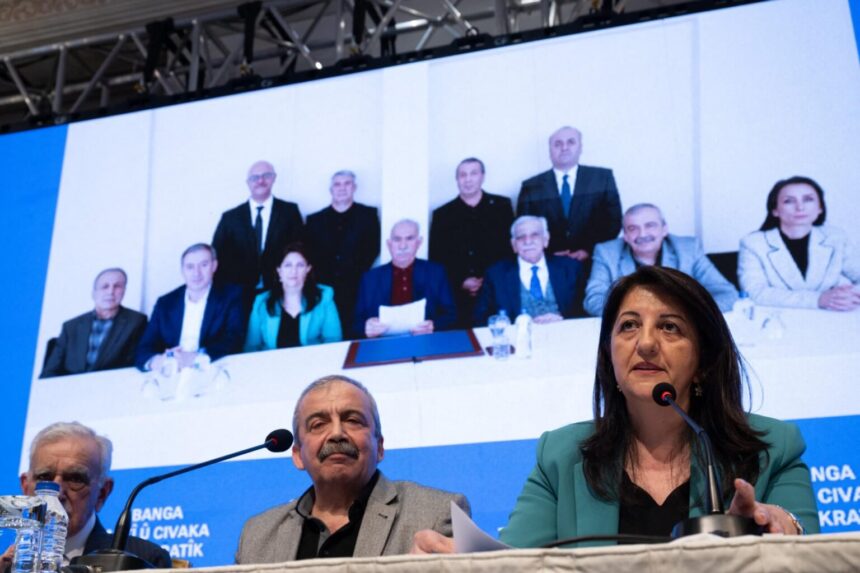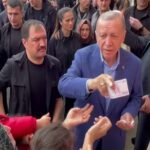President Recep Tayyip Erdoğan is set to meet with a delegation from Turkey’s pro-Kurdish Peoples’ Equality and Democracy Party (DEM Party) on Thursday, in what would mark the most significant dialogue between the government and Kurdish political figures in over a decade.
Announcing the meeting during a speech to members of his ruling Justice and Development Party (AKP) on Wednesday, Erdoğan framed the move as part of a broader effort to resolve longstanding tensions.
“By receiving the DEM [Party] delegation, we will not only meet with them but will also reaffirm our determination to achieve a Turkey free of terrorism,” Erdoğan stated.
The delegation will include prominent Kurdish politicians Pervin Buldan, Sırrı Süreyya Önder, and Ahmet Türk—all of whom previously participated in peace talks with Abdullah Öcalan, the imprisoned leader of the outlawed Kurdistan Workers’ Party (PKK). The group is expected to request renewed access to Öcalan, who has been held in solitary confinement on İmralı Island since 1999.
Öcalan, who founded the PKK in 1978, made headlines in February when he issued a surprise call for the organization to lay down arms and disband. The message, which was publicly read in Istanbul, reignited discussions of a possible return to peace talks, which last collapsed in 2015 amid a surge in violence.
Thursday’s meeting would be the first formal engagement between Erdoğan and representatives of a pro-Kurdish party since 2009. It also signals a potential thaw in relations, following years of political repression that saw the imprisonment of many Kurdish politicians, including Selahattin Demirtaş, the former co-leader of the Peoples’ Democratic Party (HDP).
The renewed interest in dialogue was sparked in part by Devlet Bahçeli, leader of the far-right Nationalist Movement Party (MHP) and a key ally of Erdoğan. In a surprising move last October, Bahçeli floated the idea of a peace gesture toward Öcalan if he renounced violence—a suggestion Erdoğan appeared to endorse.
Despite being designated a terrorist group by Turkey and its Western allies, the PKK has continued to be a major player in the country’s internal security landscape. The armed conflict, which began in 1984, has claimed more than 40,000 lives, mostly in Turkey’s predominantly Kurdish southeast.
With tensions still high, the upcoming meeting is being closely watched both domestically and internationally as a potential turning point in Turkey’s approach to the Kurdish issue.



